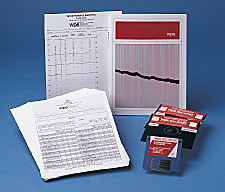 | |

Suicide Probability Scale (SPS) The Suicide Probability Scale (SPS) gives clinicians a rapid, accurate, and empirically validated measure of suicide risk in adults and adolescents over 13 years of age. Quick and cost-effective, the SPS permits routine screening in any high-risk setting. |
The scale is composed of 36 items that describe particular feelings and behaviors. The respondent indicates how often each statement applies to him or her, using a 4-point scale. The test form does not mention suicide in its title. |
The SPS generates three summary scores a total weighted score, a normalized T-score, and a Suicide Probability Score which give an overall indication of suicide risk. For a more detailed clinical interpretation, the SPS also provides four subscales: • Hopelessness • Suicide Ideation • Negative Self-Evaluation • Hostility. |
The Manual includes case studies illustrating the tests interpretation and its clinical use. Standardization is based on a sample of more than 1,100 individuals, including normals, psychiatric patients, and lethal suicide attemptors. Separate norms are provided for each of these groups. |
For all the useful information it provides, the SPS requires very little professional time. It can be administered to individuals or groups in only 5 to 10 minutes, then scored and interpreted in just a few minutes more. |
For added convenience, the SPS is available via WPS TEST REPORT FAX Service. This option gives you immediate scoring and a clear summary of test results. Contained on a single page, the SPS computer report can be easily added to a clients file or bound into a medical chart. It provides a concise estimate of suicide potential that, along with your clinical evaluation, helps determine appropriate intervention. |
The SPS is widely used as a screening device in clinics, inpatient units, juvenile detention centers, hospital emergency rooms, and suicide prevention centers. It is especially useful with suicidal individuals who are being maintained in outpatient psychotherapy, where continuous, systematic monitoring is particularly important. |
Component
KIT: Includes 25 Test Forms; 1 Manual; 25 Profile Forms


